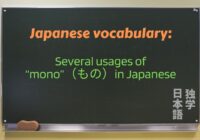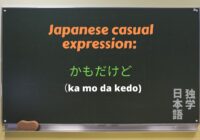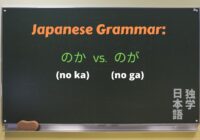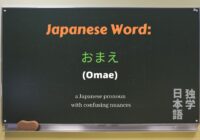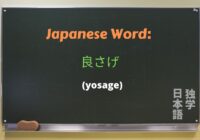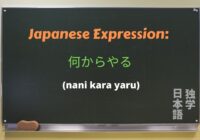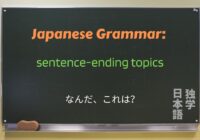Ten surprising Japanese loanwords that come from German
English-speakers tend to quickly pick up on the large number of words in Japanese that come from English (something I’ve written a few articles about). However, there are many loanwords in Japanese that originate from other languages such as Portuguese, Dutch, French, and German. It so happens that I have started studying German a little… Read More »

